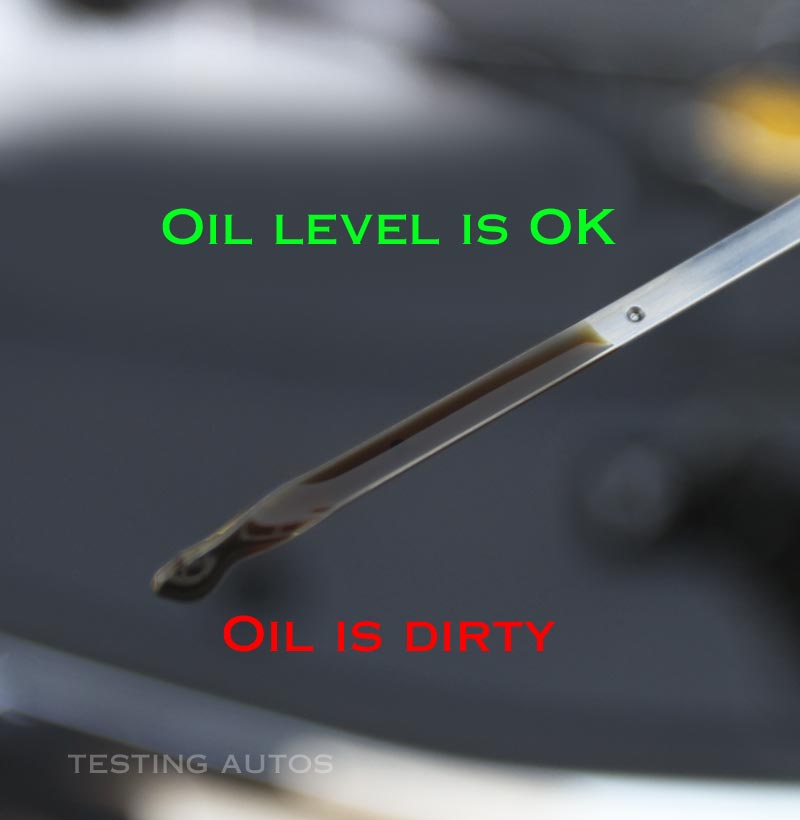Understand when and how often to change it, what type your car needs, and more
If you’re confused about motor oil—the right time to change it, how often to change it, what’s the best oil for your car—Consumer Reports’ chief mechanic, John Ibbotson, can set you straight.
1. When to Change the Oil
The answer to a lot of these questions is the same: Check your owner’s manual. It should be your car maintenance and operation bible. Don’t make assumptions on the interval based on past experiences or guidance from mechanics who profit from the work, because the timing has evolved over the years.
Many cars, pickups, and SUVs now have service reminder monitors that alert drivers when to change their oil. “These systems typically monitor the number of miles a vehicle has traveled, and they also sense how hard the car is being driven, and adjust accordingly,” Ibbotson says.
Make sure you get your oil change soon after you receive such an alert.


2. How Often to Check the Oil Level
The answer to a lot of these questions is the same: Check your owner’s manual. It should be your car maintenance and operation bible. Don’t make assumptions on the interval based on past experiences or guidance from mechanics who profit from the work, because the timing has evolved over the years.
Many cars, pickups, and SUVs now have service reminder monitors that alert drivers when to change their oil. “These systems typically monitor the number of miles a vehicle has traveled, and they also sense how hard the car is being driven, and adjust accordingly,” Ibbotson says.
Make sure you get your oil change soon after you receive such an alert.
3. How Often to Change the Oil
Some swear by the “every 3,000 miles or every 3 months” rule, but advances in engines and oil have made that guidance obsolete. Many automakers have oil-change intervals at 7,500 or even 10,000 miles and 6 or 12 months for time.
“Your owner’s manual has more detailed information about your car than any mechanic does,” Ibbotson says. “Don’t get talked into too-often oil changes. Follow the manual and your car’s engine should stay well-lubricated and perform well.”
Over the course of two years and 30,000 miles, assuming that your oil change costs $60 a pop, you could save $360 if you get it changed every 7,500 miles vs. every 3,000 miles.
It’s not just about miles: If you don’t drive your car a lot, your oil still needs to be kept fresh. Even if you drive fewer miles each year than your automaker suggests changing the oil (say, 6,000 miles, with suggested oil-change intervals at 7,500 miles), you should still be getting that oil changed twice a year.
Why? Oil becomes less effective as it ages, and by not getting the engine warm enough, excess moisture that forms in the engine will not be removed, which can lead to shorter engine life.
4. Choosing the Right Oil for Your Car
Again, take a look at your owner’s manual. “Don’t be upsold into synthetic oil if there is no need,” Ibbotson says.
In many newer models, the weight of your car’s motor oil is printed on the cap where you add oil. “Make sure you know what’s recommended or required by your automaker before you visit your mechanic so that you can control the cost of the oil they’re putting in,” he says.
If you have a much older car, do you need special motor oil?
“Not if it’s running well,” Ibbotson says.
“If you’re not sure what oil you should be using because you don’t have an owner’s manual, check with your local dealer or an online enthusiast group for your particular model,” he says.

5. Do You Need Synthetic Oil?
“Only if your manufacturer calls for it,” Ibbotson says, “because it can cost from two to four times as much as conventional oil.” Synthetic oil is designed to be more effective at resisting breakdown (and because of that, it lasts longer) and withstanding high temperatures.
There are situations where that resistance to breakdown can help prolong the life of your engine. “If you make lots of short trips, standard motor oil may never get warm enough to burn off moisture and impurities, which means it may not be doing enough to protect your engine,” Ibbotson says.
Another consideration is your lifestyle. “If you live in a region with very cold winters or very hot summers, or if you use your vehicle for towing or hauling heavy material, synthetic oil is your best bet,” he says. “While synthetic generally holds up better and can serve for more miles, it is equally important to not extend oil changes beyond the time interval recommended by the manufacturer—typically six months or a year if it is a motor that is not driven many miles or on many short trips.”
Synthetic oil can also help engines that are prone to building up sludge; some Volkswagen and Toyota models have had sludge issues in the past. This residue, formed when oil breaks down, can block the flow of oil, leading to the quick death of an engine. Synthetic oil would be beneficial in these engines because it helps to reduce sludge buildup, helping to extend the engine’s lifespan.





Leave a Reply
Want to join the discussion?Feel free to contribute!